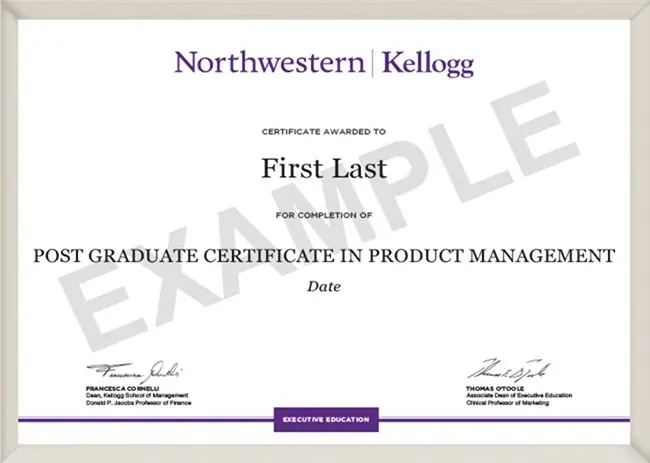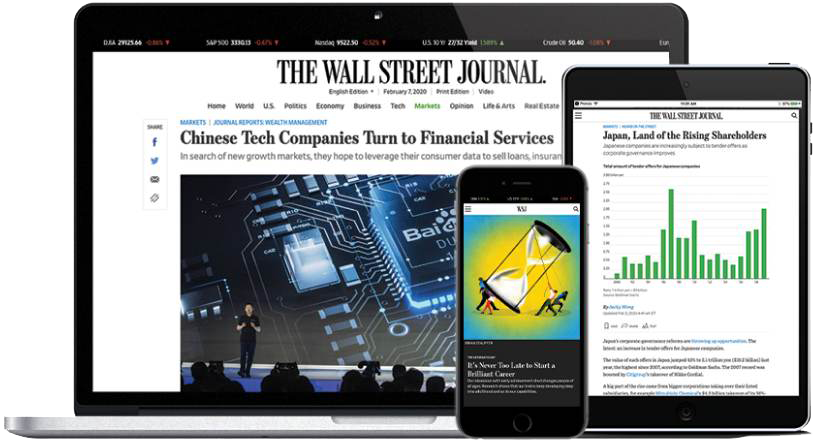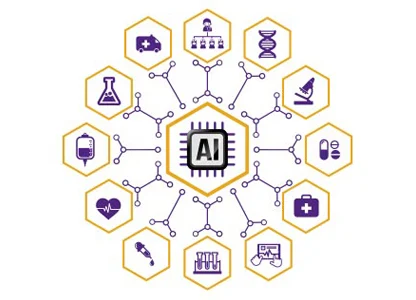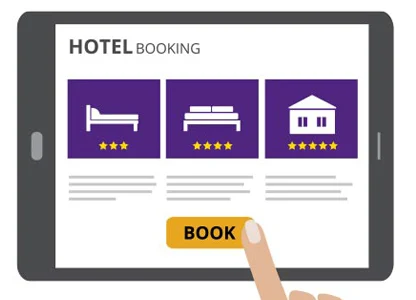Post Graduate Certificate in Product Management
Round Application Deadline
Upcoming Round Application Deadline: May 2, 2024
Program Overview
Become a next-gen product manager or 'mini-CEO' (according to McKinsey & Co, 2020) with a 360-degree understanding of visualizing, innovating, and developing cutting-edge digital products and experiences through design strategies with Kellogg Executive Education's Post Graduate Certificate in Product Management. Build and manage a product roadmap through user research, prototyping, and product analysis to deliver the most commercial impact with UX Design, Agile Methodology, and Data Science and Analytics.
This program is open for enrollments for residents of India, Bangladesh, Bhutan, Myanmar, Nepal, Pakistan, Sri Lanka, Philippines, Indonesia, Thailand, Vietnam, and Malaysia only.
High-level Program Takeaways
Master the end-to-end process of discovering, designing, developing, delivering, and managing products
Learn the strategic thinking and tactical implementation skills needed to become a professional product manager
Gain certifications in product management tools and methodologies, including project management, A/B testing (Optimizely), and analytics (Google Analytics)
Hone your communication, negotiation, and influence skills to effectively manage people and relationships
Apply frameworks and tools to develop a start-to-finish product marketing plan
Who is This Program For?
This program is ideal for:
Mid to senior-level professionals with over eight years of work experience, interested in driving product management and contributing to business growth
Professionals making a lateral career move from an adjacent field such as sales, marketing, engineering, and UI/UX will also find this program beneficial as it will help build their proficiency in understanding the implications of technology on the product portfolio and managing cross-functional roles in product management
Here are some of the most popular job titles in this field:
Product Manager/Product Owner
Associate Product Manager
Product Leader
Product Specialist
Digital Product Lead
E-commerce Product Manager
Product Marketing Manager
What Our Past Participants Say





Note: The participant testimonials are from the global cohort of the program.

Program Certificate
Upon successful completion of the program, Kellogg Executive Education will grant a verified digital certificate of completion to participants.
Note:
After successful completion of the program, your verified digital certificate will be emailed to you in the name you used when registering for the program.
All certificate images are for illustrative purposes only and may be subject to change at the discretion of Kellogg Executive Education.
This online certificate program does not grant academic credit or a degree from the Kellogg School of Management.
Program Faculty

Associate Dean for Digital Innovation; McCormick Foundation Chair of Technology; Clinical Professor of Marketing; Director of the Center for Research in Technology and Innovation
Professor Sawhney is a globally recognized scholar, teacher, consultant, and speaker in business innovation, modern marketing, and enterprise analytics. He has written seven m...
Instructors

Product Strategy Leader
Tami Reiss is a product strategy leader with 15+ years of experience helping startups, established enterprise companies, and community profit organizations define their produc...

Product Manager
Steven is a Product Manager at Palo Alto Networks, an industry-leading cybersecurity provider. In his 12+ years in Product, he has worked with a broad swath of companies inclu...

UX/UI Design Lead
Tamara has lived as an expat for nearly nine years and visited 70 countries, all while working at Google, Automattic, and Oliver Wyman. She has approached her career with the ...
Program Leaders

Kiran has done master’s in business administration, BITS-Pilani and Masters in Technology, SRM University. He is a certified Data Scientist, MLOps and Product Management. He h...

He has over 13+ years of experience leading, managing, and mentoring teams in Data Analytics for both product and service-focused organizations (Oracle, IBM, HP, Jio, Sterlite...

Complimentary Annual Digital WSJ Membership
As a participant in the program, you can enjoy a complimentary annual digital membership to The Wall Street Journal, giving you unlimited access to award-winning journalism across any device. From business and world news, to technology and life and arts, WSJ provides ambitious and fact-based reporting that readers can trust.
Financing Options* Starting at INR 8,099/month.
Program Fee | Maximum Loan Amount | Tenure (months) | EMI |
|---|---|---|---|
INR 2,95,000 + GST | INR 3,48,100 | 36 | INR 11,987 |
INR 2,95,000 + GST | INR 3,48,100 | 48 | INR 9,512 |
INR 2,95,000 + GST | INR 3,48,100 | 60 | INR 8,099 |
Also available in 12/ 18/ 24 months EMI plans.
Note:
The above EMI's are indicative and figures in INR are approx.
The EMI's offered by each of the loan providers might vary from the above figures, depending upon tenure and loan amount to be disbursed.
Our Program Advisors will help you with information on how to avail a loan from our loan providers.
*Applicable only for Indian residents.
Note:
The above EMI's are indicative and figures in INR are approx.
The EMI's offered by each of the loan providers might vary from the above figures, depending upon tenure and loan amount to be disbursed.
Our Program Advisors will help you with information on how to avail a loan from our loan providers.
*Applicable only for Indian residents.
Emeritus Career Services
15 Recorded Sessions and Resources in the Following Categories (Please note: These sessions are not live):
Resume and Cover Letter
Navigating Job Search
Interview Preparation
LinkedIn Profile Optimisation
Job Placement Assistance
Job openings are sourced by the CS Team and virtual hiring drives are conducted for the applicants.
Dedicated online portal for all candidates where they can apply for jobs & track past applications.
Regular job postings.
Please note:
This service is available only for Indian residents enrolled into select Emeritus programmes.
Kellogg Executive Education or Emeritus do NOT promise or guarantee a job or progression in your current job. Career Services is only offered as a service that empowers you to manage your career proactively. The Career Services mentioned here are offered by Emeritus. Kellogg Executive Education is NOT involved in any way and makes no commitments regarding the Career Services mentioned here.
Registration for this program is done through Emeritus. You can contact us at kellogg.execed@emeritus.org
The Learning Experience
More than 300,000 professionals globally, across 200 countries, have chosen to advance their skills with Emeritus and its educational learning partners. In fact, 90 percent of the respondents of a recent survey across all our programs said that their learning outcomes were met or exceeded. All the contents of the course would be made available to students at the commencement of the course. However, to ensure the program delivers the desired learning outcomes, the students may appoint Emeritus to manage the delivery of the program in a cohort-based manner during the course period the cost of which is already included in the overall Course fee of the course.
A dedicated program support team is available 7 days a week to answer questions about the learning platform, technical issues, or anything else that may affect your learning experience.
Early registrations are encouraged. Seats fill up quickly!
Flexible payment options available.
Starts On








